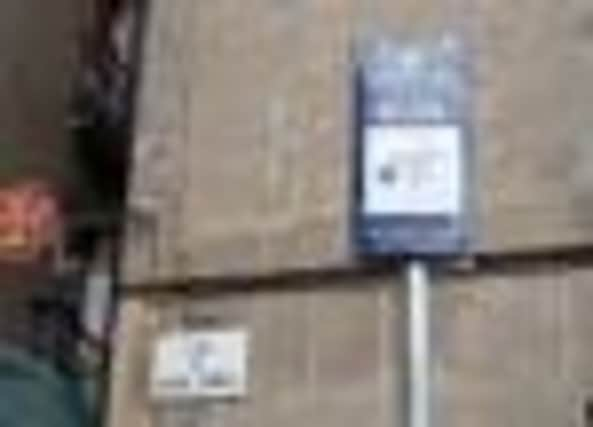Joyce McMillan: Big brother state a sign of the times


THERE’S an image currently doing the rounds on the internet that speaks volumes about the current state of western culture, and its growing ambivalence about the idea of freedom, which is supposed to be one of its core values. The image shows the street sign for a square in Barcelona named after George Orwell, one of the great freedom fighters of the Spanish Civil War, and the author of 1984, perhaps the greatest of all novels about the creeping authoritarian power of the state. The irony is the sign is almost obscured by a notice announcing the presence of a security camera, designed to film all that happens in the square. The image implies that two generations on from the publication of Orwell’s great novel, we are sleepwalking into the world of continuous official surveillance that he most feared and dreaded.
And I thought of that image again, this week, as I waded through the coverage of the current row over the implementation of the Criminal Justice and Licensing (Scotland) Act 2010.
Advertisement
Hide AdAdvertisement
Hide AdThe act comes into force on 1 April – apparently unintentionally – and empowers Scotland’s local authorities to licence and regulate not only large-scale free entertainment events like rock concerts (which were the original target of the legislation) but also tiny free arts and entertainment initatives, such as poetry readings and small exhibitions held in informal venues, including bookshops and cafes.
On one hand, 21st-century Scotland prides itself on the no-holds-barred, grass-roots-up brilliance of its arts scene and Scotland’s SNP Government has not been slow to associate itself with that scene.
Yet on the other hand, the same government introduces a casually authoritarian and sloppily-drafted piece of bureaucracy that could, overnight, make spontaneous pop-up arts initiatives almost impossible. Movers and shakers as eminent as Alex Kapranos of Franz Ferdinand, Rebel Inc publisher and poet Kevin Williamson, Edinburgh Makar Ron Butlin, and Olympiad-commissioned artist Craig Coulthard, have pointed out that the events at which they began to make their names – and the names of others, including literary superstar Irvine Welsh – would have been unlikely to have taken place if this legislation had been in force ten or twenty years ago. They add that even if fees are kept to a minimum, the combination of extra cost, bureaucratic hassle, and the need to give several weeks notice, will effectively destroy the spontaneous energy of the pop-up arts scene.
Now of course, it’s possible to overstate both the extent of this threat to Scotland’s cultural life, and the degree of hostility to the arts implied in the legislation. We already live in a world, after all, where security considerations are regularly allowed to trump basic freedoms, often without question. In the name of crime prevention, we have all surrendered our freedom to walk down city streets without being filmed and monitored. In the name of commercial confidentiality, we have allowed private companies to impose ferocious “gagging clauses” on their employees. And in Scotland, we have stood by while a bunch of suits in the parliament’s managing committee have turned our national assembly into a heavily-gated fortress, in which we – the voters – are not even allowed to walk from reception to committee-room without an escort.
As usual, in other words, Scotland’s noisy creative community are acting as an early-warning system for our growing sloppiness about issues of freedom. If the Scottish Government wants to send the right, robust signal about its commitment to creativity and the arts, it will now make a statement apologising for its error, and will issue clear guidance to local authorities that they should not apply this legislation to small free events.
Even if this particular row finally reaches a positive conclusion, it raises some disturbing questions for the future. We need, for example, to consider how well our freedoms can be defended, in a single-chamber parliament where the committee system has proved much less robust than was once hoped, as a forum for scrutinising and revising legislation.
In the UK and beyond, we need to ask ourselves whether we are not drifting, imperceptibly, towards new forms of an authoritarianism that once seemed in permanent retreat.
Now, though, it looks as if we are in danger of “having a law” to permit young artists to do what they should always be free to do, wherever they will, provided they don’t injure their fellow citizens in the process. Which is why this insidious piece of legislation should be stopped, before it goes any further. And it’s also why we need to be less complacent, in future, about those freedoms we say we cherish; but which we often let slide, when some man or woman in a suit tells us we would be safer with just a bit more form-filling here, a bit more fee-paying there, and – oh yes – those security cameras on every corner, to check that we’re doing as we’re told.